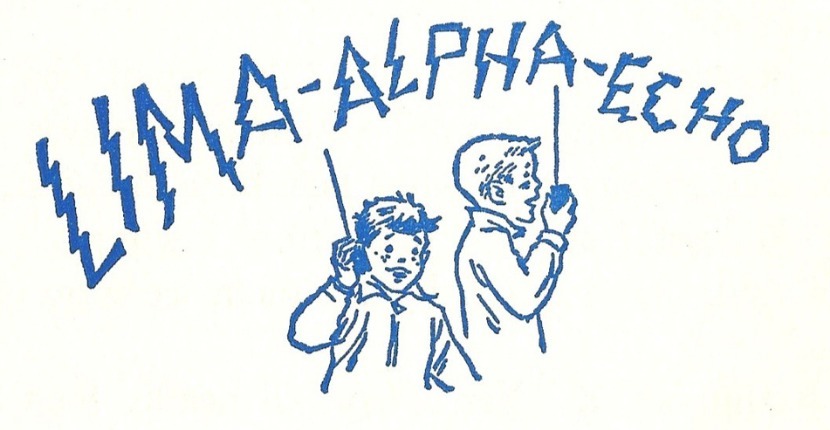Learn the International Spelling Alphabet
Hotel-Echo-Lima-Lima-Oscar from Pete, Pam, Ricky, Holly, and Sue Hollister! If this sounds like gibberish to you, it’s time to learn about the international spelling alphabet, as the Hollister children do in The Happy Hollisters and the Swiss Echo Mystery by Jerry West.
The idea for the international spelling alphabet was first conceived in the late 1800s. The most popular alphabet is called the NATO Phonetic Alphabet. It allows people who don’t speak the same language to easily and quickly communicate important information, such as the identification of aircraft traveling between airports throughout the world. It was developed using acrophony, starting each word in the alphabet with the letter it represents. The code made it easier to differentiate words with similar sounds, such as B/D, F/S, or M/N. It was especially helpful in conversations where the connections weren’t of the high-quality that we’re accustomed to now, for example, in two-way radio transmissions or in old-fashioned telephone calls that were often disrupted by crackling and delays.
The NATO Phonetic Alphabet uses simple English words that are easy to pronounce and understand, so that anyone who knows the alphabet can communicate. When using the international spelling alphabet, words are pronounced a certain way for uniformity. For example, “Lima” is pronounced as “lee-mah” and “Quebec” is “keh-beck.” Some people might pronounce these words differently in everyday life, but having a standardized pronunciation ensures there won’t be misunderstandings or missing information in important communications.
The Hollisters learn the code from Mr. Meyer, a new pilot friend in The Happy Hollisters and the Swiss Echo Mystery. He teaches them this version of the alphabet: Alpha – Bravo – Charlie – Delta – Echo – Foxtrot – Gold – Hotel – India – Juliet – Kilo – Lima – Mike – November – Oscar – Papa – Quebec – Romeo – Sierra – Tango – Uniform – Victor – Whisky – X Ray – Yankee – Zulu
 Some variations of the code use alternatives, such as “Alfa,” “Golf,” and “Juliette.” The international spelling alphabet has been modified several times over the years, but we don’t know if Mr. Meyer’s use of “Gold” in place of “Golf” is based on a previous version or is a simple typographical error in Swiss Echo. (See page 14 in the original hardcover books or page 15 in the paperback reissue.) Prior to World War II, military organizations, and railroad and aircraft workers developed and used their own unique sets of codes. The alphabet became standardized for most organizations in 1969.
Some variations of the code use alternatives, such as “Alfa,” “Golf,” and “Juliette.” The international spelling alphabet has been modified several times over the years, but we don’t know if Mr. Meyer’s use of “Gold” in place of “Golf” is based on a previous version or is a simple typographical error in Swiss Echo. (See page 14 in the original hardcover books or page 15 in the paperback reissue.) Prior to World War II, military organizations, and railroad and aircraft workers developed and used their own unique sets of codes. The alphabet became standardized for most organizations in 1969.
Knowing this alphabet comes in very handy for the Hollisters when Mr. Meyer’s airplane goes missing in the Swiss Alps and the children join in the rescue operation. Read The Happy Hollisters and the Swiss Echo Mystery to join in the fun and learn more about how the international spelling alphabet can be used!
Sources:
Research notes, Andrew Svenson Archives of The Hollister Family Properties Trust
https://www.nationsonline.org/oneworld/international-spelling-alphabet.htm
https://en.wikipedia.org/wiki/Spelling_alphabet#Radiotelephony_spelling_alphabets

